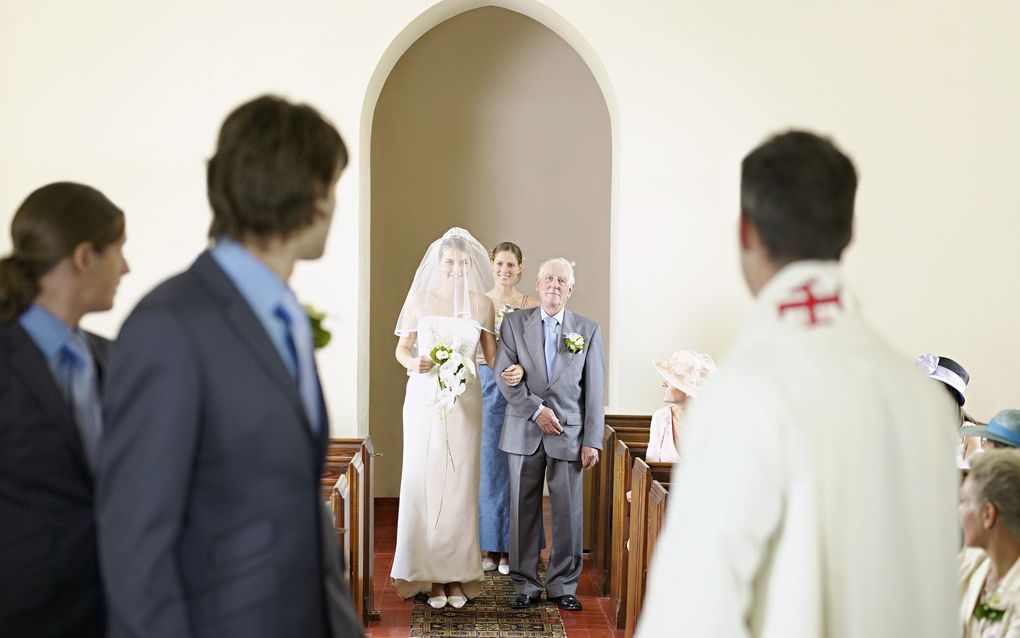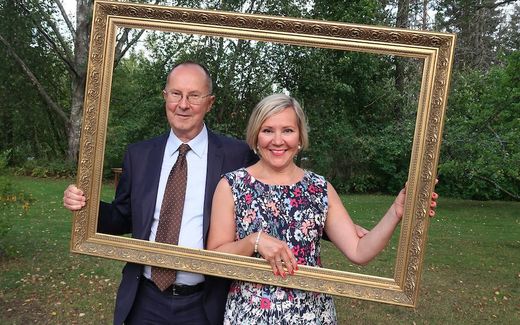An arranged marriage might not be romantic, but it is much more stable
11-06-2022
Nico van der Voet, Terdege

Photo iStock
A Christian student from my class told me that his parents arranged his marriage. He was born in Armenia, but the marriage was arranged after they emigrated to the Netherlands. Before the wedding day, he had only met his wife personally twice, and the second time was even by accident. This student made a happy impression on me.
In Martin Luther’s time, the order was: marry first, then love each other. That was the age-old Christian view of marriage. You married someone you thought you would get along with. Or your parents arranged the marriage. Afterwards, it was your duty to love.

Nico van der Voet (1958) is married and has four children and a grandchild. He studied theology in Utrecht and teaches theology at the Christian College Ede (CHE), where he also works as a student pastor.
That duty was not about feelings of love but about faithfully caring for each other. Usually, those marriages went well. It is still how it goes in cultures that the Romantic Era has not influenced.
Romantic love
During the era of Romanticism, feelings became the basis of marriage. First, you had to love and be fond of someone. Only then you could get married. Parents no longer arranged marriages. The practise of arranged marriages only continued among the nobility for another century.
Halfway through the nineteenth century, the son of wealthy parents was able to marry the daughter of poor beggars. If necessary, the couple fled to America to start a new life. Romantic love conquers all!
The order “first love someone and only then marry”, has produced good marriages but also a lot of trouble. Think, for example, of couples who are afraid of getting married because one of them is not sure about his or her feelings for the other. Sometimes the relationship is broken off a week before the wedding.
Feelings are hard to handle! Some people have stayed single because of this. They have tried a few dates but were never sure if they loved the other person enough.
The romantic requirement of falling in love has become a strict norm. Nowadays, no one marries anymore despite his feelings.
Faithful
This principle also had consequences for homosexuals. The Romantic Era brought them trouble. Until the 19th century, they married someone of the opposite sex. You didn’t have to feel anything special if you became a dutiful husband. Some homosexuals may have sought entertainment outside of marriage, but marriage to the opposite sex was not an insurmountable problem.
After the period of Romanticism, this became impossible. Going against your feelings would violate yourself. So, homosexuals felt trapped until, in our time, romantic marriage became possible for them too.
Do you know these three steps through history?
- Martin Luther (16th century) said: “I love my wife because I married her.”
- During Romanticism (19th century), it became: “I marry the woman I love.”
- In the 20th century, that became: “I will remain faithful to my wife as long as I love her.”
This proves that the development goes on. Since the nineteenth century, we have only married those we love. Roughly up to 1970, people still expected us to stay faithful after the wedding day, although the feeling of love might have gone. That, too, is now over.
Anchor
Love as duty is out of fashion. Love as a feeling is the norm, not only before but also in marriage. That has resulted in many divorces. People separate when their feelings for each other (perhaps after years of struggling) have disappeared. Love may even have given way to aversion.
It is difficult not to take that negative feeling seriously. That becomes even stronger when positive feelings do arise for another person. And even if, as a matter of principle, we do not divorce when our love feelings are over, we still feel unhappy. Love as a grateful duty of care is too big of a task for more and more people.
Romanticism has made relationships more spontaneous, cordial and perhaps also more honest. Marriage is more than a partnership.
However, we cannot deny the harmful consequences either. The key issue is that the anchor for the relationship is not thrown out outside the marriage boat, namely in the solid ground of the promise of marriage before God. Couples throw out the anchor into the ship itself, within their own feelings. But that’s no solid ground at all. If the anchor is in the boat, it will always float. We know what God asks of us. Feelings should not be number one in our lives. His commandments show us a better way.
Split
Meanwhile, we share the positive and negative consequences of the Romantic Era. You suffer when your husband or wife shows no signs of being in love, even if the relationship is otherwise going well. You are careful with the feelings of your homosexual child. You feel pain when your son says that his wife no longer feels anything for him. If your grandchild has an unbelieving friend, you say that you will pray for them, and you are wise enough not to say that this friendship is not allowed.
When you visit people whose marriage is emotionally shattered, you encourage them to do whatever it takes to save the marriage. You also accept it if it doesn’t work out, don’t you? Biblical ethics and taking our feelings seriously at the same time can sometimes put us in a difficult dilemma.
Related Articles






